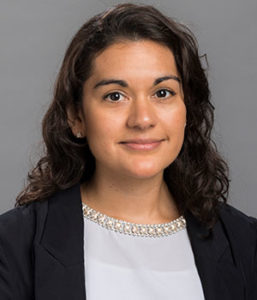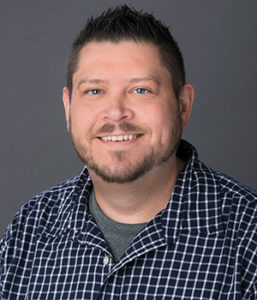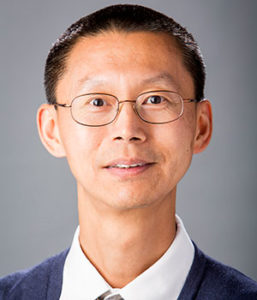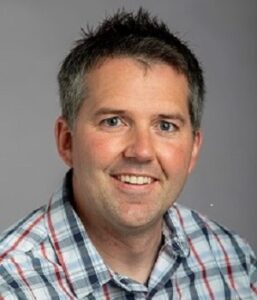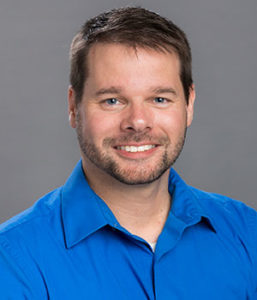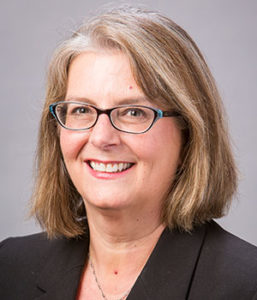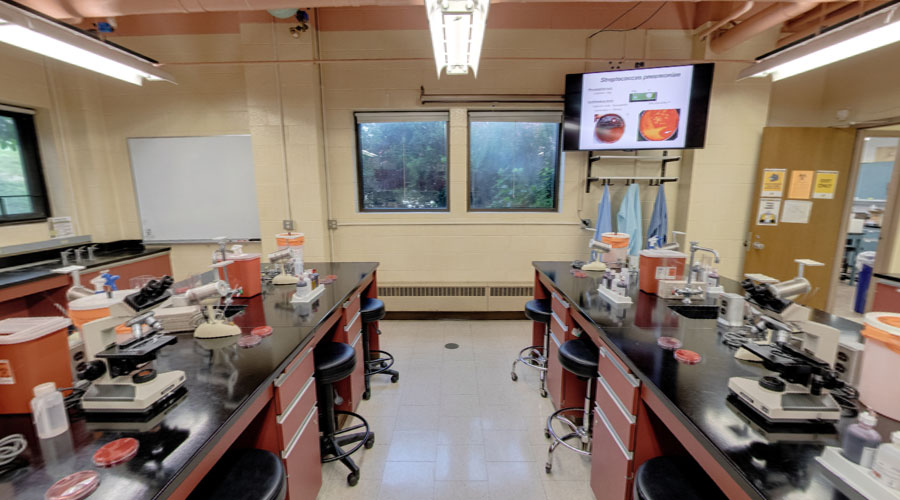Biomedical Sciences: Cytotechnology BS
As a cytotechnologist, you’ll use high-tech methodology to study cells within the human body.
You will prepare slides of body cells and microscopically examine them to detect changes caused by different disease processes, such as cancer. Spending a good deal of time in the laboratory with their microscopes, cytotechnologists generally work alone or in small groups.
Program Type
Major
Program Format
On Campus
Cytotechnologists
As a cytotechnologist, you will prep and stain cells from a wide range of specimen types. You will utilize microscopy to examine and help diagnose cancer cells or other cellular anomalies, providing preliminary interpretation for pathologists and ordering physicians.
Cytotechnologists can work in a variety of settings such as hospital, research or industry laboratories.
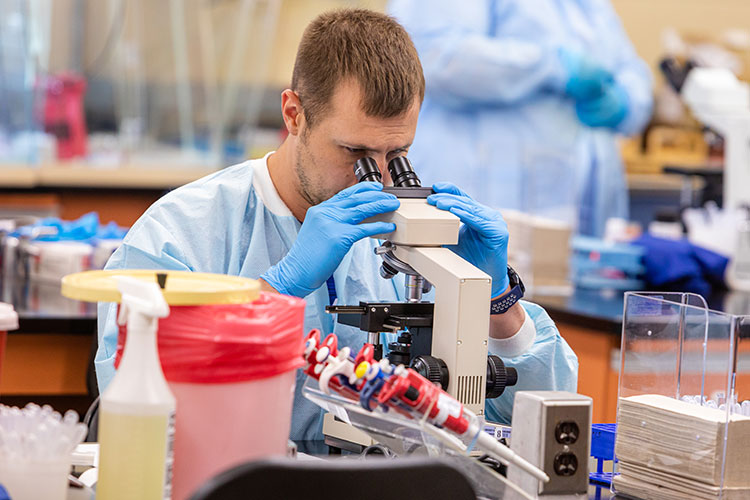
- Cytotechnology is a rewarding career that uses your knowledge and skills to help patients.
- You will have excellent job opportunities nationally.
- You will work regular work hours, usually 9-5 (flexible options may be available in some settings.)
- With as little as three years of experience as a cytotechnologist, you may have opportunities for advancement, including supervisory positions.
Medical tests are critical to the accurate detection, diagnosis and treatment of diseases, and so are the scientists who analyze and interpret those tests in the lab. If you enjoy science and its practical application, particularly in health care or related research, a degree in biomedical sciences could be for you.
With the BS Biomedical Sciences degree, you can be part of a wide variety of continually changing, dynamic professions, all with good long-term career prospects.
Employment Outlook
Learn more about career opportunities in laboratory science at laboratorysciencecareers.com.
Earnings
According to 2019 ASCP Wage Survey, cytotechnologists have an average salary of approximately $74,000.
Successful Alumni
The School of Biomedical Sciences & Health Care Administration has many successful alumni. These alumni have taken their degrees and have excelled in their careers.
Visit our Alumni page and be inspired by where a health sciences degree can take you.
Related Programs
You will complete 12 months of practical training during your senior year through the UW-Madison Cytotechnology program. Upon graduation, you will be eligible to take the professional certification examination offered through the American Society for Clinical Pathology/Board of Certification (ASCP/BOC).
Entry into the Cytotechnology Professional program is competitive and dependent upon:
- Completion of a minimum of 90 semester hours of coursework, including all required courses and UWM General Education Requirements (GER).
- An overall minimum UWM grade point average (GPA) of 2.5.
- A minimum GPA of 2.5 in the specified science courses:
- Chemistry: 102, 104, 221, 341, 342, 501
- Biological Sciences: 202, 203, 325, 383
- Biomedical Sciences: 301-305, 427, 428
- A minimum grade of ‘C’ in all junior-level science courses.
PLEASE NOTE: The program will attempt to place all students who meet the above criteria, but cannot guarantee that every student will be placed in a clinical rotation. The number of students placed in clinical rotations depends on the number of clinical positions available. Students with the highest science GPA will be given first priority. You will be contacted regarding your eligibility for clinical placement prior to the start of the spring semester of your junior year.
In the event that more clinical positions are available than students requesting placement, a student with a GPA between 2.0 and 2.5 may be conditionally accepted for a clinical rotation. Each student will be reviewed on an individual basis and must have approval from the Department of Biomedical Sciences faculty and the clinical education coordinator(s).
To remain eligible to continue in the professional training, you must earn a grade of ‘C’ or better in all senior-level courses. You must be prepared for full-time study (40 hours per week) that could also require additional study time at night and on weekends.
Application Process
You will apply to the UW-Madison Cytotechnology Program through their online application.
Clinical Affiliations
You will apply for professional clinical training through the UW-Madison/State Lab of Hygiene Cytotechnology Program.
Interviews with Clinical Education Coordinators
The Cytotechnology Program Officials will review the application materials and schedule an interview in February or March.
Clinical Placements
Upon completion of the interviews, the Cytotechnology program officials will send out acceptance or rejection letters on April 1. You will have one week to respond to the acceptance letter and confirm your interest in a clinical placement.
Background Check, Drug Screen & Health Status Assessment
All students who will be participating in professional clinical training are required to have a background check, drug screen, and health status assessment performed prior to starting their clinical rotation. The background check, drug screen, and heath assessment compliance tracking will be performed through a company called CastleBranch. The program director will provide instructions for creating an account with CastleBranch. Once the required testing is completed, the results will be reviewed by the program director and shared with the internship site upon request.
Important Information
- You need to meet with your advisor to review transcripts and complete a degree audit to make sure that your academic records are in order.
- A background check and a physical examination are required of all students prior to starting the professional clinical training. Health Status Assessment Forms (PDF) should be submitted to:
Department of Biomedical Sciences Program Office
College of Health Sciences
University of Wisconsin-Milwaukee
Enderis Hall, Room 411
Milwaukee, WI 53201 - The clinical affiliate sites require that all students have health insurance while in the clinical rotation.
- Limited employment during the summer semester is recommended.
- Rotation schedules, vacations and other time off are matters that are decided individually by each clinical site. The UWM academic calendar does not apply.
- Students will enroll as a special student undergraduate under the Continuing Studies Department at UW-Madison.
*You must achieve a minimum cumulative GPA of 2.500 in these required science courses.
**Strongly recommended but not required for graduation.
General Education Requirements (GERs)
Learn more about UWM’s General Education Requirements
| COURSE | GER | Credits |
|---|---|---|
| Social Science Select course from the approved GER Social Science list | GER-SS | 6 |
| Cultural Diversity Select course from approved GER list; Can be combined with Arts/Humanities | GER-CD | 3 |
| Arts Select course from the approved GER Arts list | GER-A | 3 |
| Humanities Select course from the approved GER Humanities list | GER-HU | 6 |
| Total Credits: | 18 |
Freshman Year
Fall Semester
| Course | Credits |
|---|---|
| BIO SCI 202: Anatomy & Physiology I* | 4 |
| BMS 101: Intro to Clinical Lab Science** | 2 |
| BMS 205: Intro to Diagnostic Medicine** | 3 |
| CHEM 102: General Chemistry* | 5 |
| GER Elective – Arts | 3 |
| Total Credits: | 17 |
Spring Semester
| Course | Credits |
|---|---|
| BIO SCI 203: Anatomy & Physiology II* | 4 |
| CHEM 104: General Chemistry & Qualitative Analysis* | 5 |
| GER Elective – Social Science | 3 |
| GER Elective – Humanities | 3 |
| Total Credits | 15 |
Sophomore Year
Fall Semester
| Course | Credits |
|---|---|
| BIO SCI 150: Foundations of Biological Science I* | 4 |
| BMS 301 & 302 & 303: Human Pathophysiology* | 3 |
| CHEM 341: Organic Chemistry Lecture* | 3 |
| CHEM 342: Organic Chemistry Lab* | 2 |
| GER Elective – Humanities | 3 |
| Total Credits: | 15 |
Spring Semester
| Course | Credits |
|---|---|
| BIO SCI 325: Genetics* | 4 |
| BMS 304 & 305: Human Pathophysiology* | 2 |
| HS 224: Computational Tools for Healthcare Professionals | 3 |
| KIN 270: Statistics in Health Sciences (QLB) | 3 |
| GER Elective – Social Science & Cultural Diversity | 3 |
| Total Credits: | 15 |
Junior Year
Fall Semester
| Course | Credits |
|---|---|
| BIO SCI 383: General Microbiology* | 4 |
| BMS 427: Clinical Immunology* | 3 |
| BMS 428: Clinical Immunology Lab* | 1 |
| CHEM 501: Biochemistry* | 3 |
| HCA 249: Writing for Professional Development in Health Administration (OWCB) | 3 |
| Total Credits: | 14 |
Spring Semester
| Course | Credits |
|---|---|
| BMS 420: Introduction to Hematology | 3 |
| BMS 421: Introduction to Hematology Lab | 1 |
| BMS 431: Clinical Chemistry | 3 |
| BMS 432: Clinical Chemistry Lab | 1 |
| BMS 534: Medical Microbiology | 3 |
| BMS 535: Medical Microbiology Lab | 2 |
| BMS 560: Molecular & Genetic Diagnostics | 2 |
| BMS 561: Molecular Diagnostics Lab | 1 |
| Total Credits: | 16 |
Senior Year
Summer – Professional Training
| Course | Credits |
|---|---|
| BMS 521: Applied Clinical Hematology | 2 |
| BMS 522: Hemostasis | 1 |
| BMS 536: Applied Clinical Microbiology | 2 |
| BMS 537: Medical Parasitolgy & Mycology | 2 |
| BMS 541: Urinalysis | 1 |
| BMS 542: Applied Clinical Chemistry | 2 |
| Total Credits: | 10 |
Fall Semester – Professional Training
| Course | Credits |
|---|---|
| BMS 501: Introduction to Cytotechnology | 1 |
| BMS 575: Cytology of Fem Gen Lecture | 4 |
| BMS 576: Cytology of Fem Gen Lab | 4 |
| BMS 577: Cytology of Respiratory Tract | 3 |
| Total Credits: | 12 |
Spring Semester – Professional Training
| Course | Credits |
|---|---|
| BMS 578: Cytology of the GI & GU Tracts | 2 |
| BMS 579: Cytology of Effusion & CNS | 3 |
| BMS 580: Aspiration Cytology | 4 |
| BMS 581: Special Procedures in Cytology | 1 |
| BMS 582: Cytology of the Breast | 1 |
| BMS 586: Cytology Lab Operations & QC | 1 |
| Total Credits: | 12 |
Summer
| Course | Credits |
|---|---|
| BMS 583: Cytology Preparation Techniques | 1 |
| BMS 587: Research Methods in Cytology | 1 |
| BMS 588: Diagonostic Microscopy in Cytology | 5 |
| Total Credits: | 7 |
To schedule an advising appointment, call 414-229-2758 or visit Northwest Quadrant Building B, Room 6425.
You can also see the name of your advisor and contact them directly by accessing your student center in PAWS.
When should I meet with my advisor?
You are encouraged to meet with your advisor at least once per semester to ensure timely progress to graduation.
- Enrolling for spring semester?
Schedule an appointment with your advisor in October or November. - Enrolling for fall semester?
Schedule an appointment with your advisor in March or April.
You are also welcome to schedule an appointment with your advisor at any time to discuss academic challenges, career opportunities or any other questions.
How can my advisor help me?
The College of Health Sciences boasts professional academic advisors who understand the challenges of balancing academics, work, family and the social aspects of college life. Advisors partner with you to:
- Explore your academic and career interests
- Plan the sequence of your courses
- Prepare for course enrollment
- Access tutoring and other academic support
- Identify opportunities for campus involvement
- Connect you to campus resources
- Plan for graduation
- Clinical Associate Professor, Biomedical Sciences
- sawan@uwm.edu
- 414-251-9423
- Enderis Hall 479
- Clinical Assistant Professor, Biomedical Sciences Undergraduate Laboratory Programs Clinical Education Coordinator, Biomedical Sciences
- bkdepons@uwm.edu
- 414-251-5861
- Enderis Hall B92
- Clinical Associate Professor, Biomedical Sciences
- houf@uwm.edu
- 414-251-7123
- Enderis Hall 465
- Clinical Associate Professor, Biomedical Sciences Undergraduate Laboratory Programs Director, Biomedical Sciences
- Associate Professor, Chair, Biomedical Sciences Department, (Biomedical Sciences and Diagnostic Medical Imaging Programs)
- nardelld@uwm.edu
- 414-251-9074
- Enderis Hall 493
- Clinical Professor, Director of Academic Initiatives and Planning, Biomedical Sciences, Office of the Dean
- sstalews@uwm.edu
- 414-229-5992
- Northwest Quadrant B 6515

